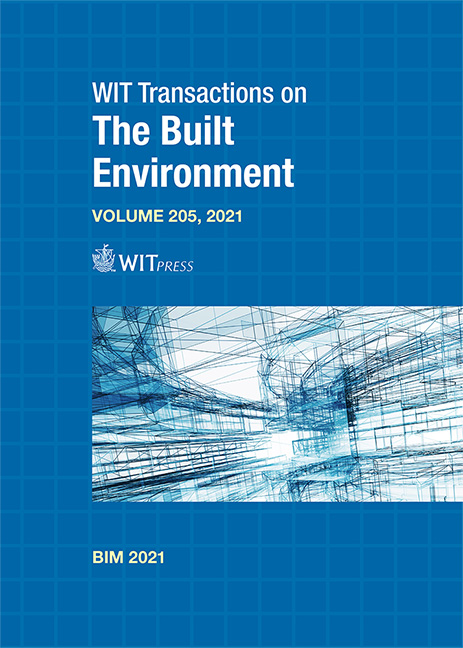VIRTUAL REALITY STORIES FOR CONSTRUCTION TRAINING SCENARIOS: THE CASE OF SOCIAL DISTANCING AT THE CONSTRUCTION SITE
Price
Free (open access)
Transaction
Volume
205
Pages
11
Page Range
37 - 47
Published
2022
Paper DOI
10.2495/BIM210041
Copyright
Author(s)
FELIPE MUÑOZ-LA RIVERA, JAVIER MORA-SERRANO, EUGENIO OÑATE
Abstract
The architecture, engineering, construction and operation industry has high accident rates, and its workers are susceptible to certain risks due to the variability of their worksites, the tasks they perform and the equipment they use. Of particular interest is the coexistence of workers and heavy machinery in the same space, which is one of the main causes of high accident rates. Increasing digitisation also incorporates the use of new systems (e.g. UAVs, autonomous vehicles, robotic devices), which must function while preserving worker safety. As such, worker training is also essential in these contexts. Research indicates that occupational risk prevention training in construction is not satisfactory. Traditional methods based on lectures (where the student does not take an active role) and traditional test-type assessments do not result in significant learning and fail to create a culture of prevention among workers. In the context of the COVID-19 pandemic, the construction industry has had to incorporate new prevention measures to continue projects while protecting workers’ health and safety. Virtual reality has demonstrated advantages in adapting to different contexts, allowing for the agile development of training experiences with immersive characteristics and more significant learning than traditional methods. This research shows the application and agile development of a training experience for social distancing at construction sites to prevent COVID-19 transmission, based on virtual reality and building information modelling and using serious games as a teaching strategy.
Keywords
virtual reality, BIM, construction site, safety in construction, storytelling, job safety analysis technicians (JSAt), COVID-19





